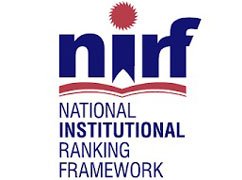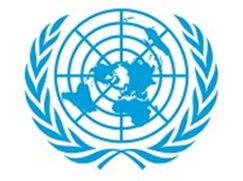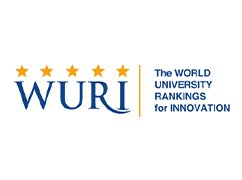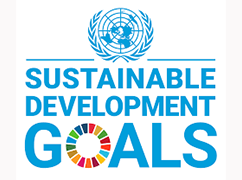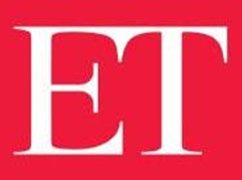
B.Tech in Electronics and Communication Engineering enables the students to solve complex engineering problems using the specializations of electronics and communication. The programme is designed with globally competent curriculum and delivered to the students through a problem based and project-based approach. The curriculum has the study and application of electricity, electronics and electromagnetism so that mundane jobs are taken away from human to machines. Vision is to emerge as a centre of academic excellence in the field of Electronics & Communication Engineering to address the dynamic needs of the industry upholding moral values.
Highlights of the programme include,
• The students will have mandatory internships and also industry-based student internships to understand the requirements of industry.
• Students are given a plethora of interdisciplinary and multidisciplinary disciplines through open electives and global electives in line with National Education Policy 2020.
• Industry oriented curriculum towards providing opportunities to solve real time problems faced by industries.
• Application based teaching learning through case studies and frequent field visits.
• Opportunity to hone their skill sets required in a particular domain through Honours and Minor programmes.
Applicants may apply online for the programme from 8th December 2023 on the University website till the date of applications officially closing.
Applications for each programme will close approximately a week before the scheduled selection process.
All applicants must visit the page: https://appstat.christuniversity.in and register by entering NAME (as printed on Class 10 Marks Card), EMAIL-ID and set a password. (The email id and mobile number provided will be used for sending confirmation and application status-update messages). An applicant can apply for as many programmes using the same ID as long as the prescribed eligibility criteria for the specific programme is fulfilled.
Office of Admissions will communicate with the applicant only through university website www.christuniversity.in under the link “Application Status” or click the link: https://appstat.christuniversity.in
Note: The International Student category fee structure is binding for the full duration of the programme and cannot be transferred /changed in between.
Candidates from the above listed categories having pursued Indian Educational qualification and who may have applied under the Indian States Category will have to pay the International Student Category Fee. The decision of the Admission committee is final.
Candidates seeking admission through International Student category (Foreign Nationals/PIO/OCI) will have a separate application process, with the following options to apply for any programme at Christ University.
Online Application form
Email ID for any clarifications: isc.admission@christuniversity.in
Students are welcome to apply under the Non Resident Indian category for the programmes offered by the University. Application process is common for all category of applicants.
Students who fall under any of the following classifications can apply under NRI Student category and be liable to pay the fees applicable to the category for the entire duration of the programme.
Admission to all programmes is based on academic achievement and CHRIST (Deemed to be University) Selection Process. Candidates should submit the final results of class 12 on or before August 30th of the admission year.
Applicants must read through the Selection process, Fee Structure and other details under the preferred programme given on our website before proceeding with the application process.
Selection process results will be available on https://espro.christuniversity.in/Application/ according to the important dates section. Selected candidates will receive an E-Offer of admission that will be valid up to the date mentioned in the Offer of admission.
All selected candidates must note that admission is provisional and subject to University rules.
Selected candidates must download the offer of admission on the ‘Application Status’ link on the University website.
An undertaking for pending original documents unavailable currently [applicable only for candidates writing/passing their exam in March – June – 2024], must be submitted to the Office of Admissions. These documents must be submitted on or before 30 August 2024.
All admitted students must open an account at South Indian Bank, CHRIST (Deemed to be University) Branch as part of the admission process and must carry relevant ID proof (Aadhar Card and Pan Card).
The University ID card is a smart card, which is both an ID cum ATM card with a chip containing the student personal details. All transactions within the University campus after the commencement of classes, including fee payment, will be processed only through this card. It is also an access card for Library and other restricted places.
Selected candidates who fall under International student category (ISC) should register with the Foreigner Regional Registration Officer (FRRO / FRO) of the Local Police in Bengaluru, India within 14 working days from the date of admission or arriving in Bengaluru.
Phone
+91 92430 80800
+91 80 4012 9400
Email IDs
Indian candidates: admissions@christuniversity.in
NRI candidates: nri.admission@christuniversity.in
International: isc.admission@christuniversity.in
CHRIST (Deemed to be University)
Kanmanike, Kumbalgodu, Mysore Road,
Bengaluru – 560 074, Karnataka, INDIA
CHRIST (Deemed to be University),
Mariam Nagar, Meerut Road,
Delhi NCR Ghaziabad – 201003
Phone
1800-123-3212
CHRIST (Deemed to be University)
Hulimavu, Bannerghatta Road,
Bengaluru – 560 076, Karnataka, INDIA
Phone
+91 080 4655 1306
Email
admissions.bgr@christuniversity.in
CHRIST (Deemed to be University)
Nagasandra, Near Tumkur Road,
Bengaluru 560 073, Karnataka, INDIA
CHRIST (Deemed to be University),
Christ University Road, 30 Valor Court, PO Dasve Lavasa, Mulshi, Pune – 412112, Maharashtra
Phone
1800-123-2009
Between: Monday to Friday: 09:00 AM to 04:00 PM,
Saturday: 09:00 AM to 12:00 PM
(Office remains closed on Sundays, Government Holidays and Any special events)
For any queries at any given time during the application and admission process, you may contact us through the following Email ID’s:
APRIL ENTRANCE TEST TIMINGS (IST) : 09:00 AM | 12:00 PM | 03:30 PM
Year | # Karnataka | Other Indian States | NRI | SAARC / AFRICA / PIO / OCI / ASEAN | Other Foreign Nationals | Time of Payment |
|---|---|---|---|---|---|---|
1 | 200,000INR | 220,000 INR | 330,000 INR | 4,900 USD | 5,500 USD | Within seven days of declaration of the Selection Process Result |
2 | 200,000INR | 220,000 INR | 330,000 INR | 4,900 USD | 5,500 USD | On or before March 15, 2026 |
| 3 | 220,000 INR | 240,000 INR | 360,000 INR | 5,400 USD | 6,000 USD | On or before March 15, 2026 |
| 4 | 220,000 INR | 240,000 INR | 360,000 INR | 5,400 USD | 6,000 USD | On or before March 15, 2027 |
# The fee for Karnataka domicile students, as indicated in the table, is the actual fee payable and excludes the scholarship amount.
It is to be noted that though the fee is fixed for four years, there may be a periodic nominal increase to meet the rise in costs.
(The above condition is not applicable to NRI and candidates applied under NRI Category).
Engineering knowledge: Apply the knowledge of mathematics, science, engineering fundamentals, and an engineering specialization to the solution of complex engineering problems.
Problem analysis: Identify, formulate, review research literature, and analyze complex engineering problems reaching substantiated conclusions using first principles of mathematics, natural sciences, and engineering sciences.
Design/development of solutions: Design solutions for complex engineering problems and design system components or processes that meet the specified needs with appropriate consideration for the public health and safety, and the cultural, societal, and environmental considerations.
Conduct investigations of complex problems: Use research-based knowledge and research methods including design of experiments, analysis and interpretation of data, and synthesis of the information to provide valid conclusions.
Modern tool usage: Create, select, and apply appropriate techniques, resources, and modern engineering and IT tools including prediction and modelling to complex engineering activities with an understanding of the limitations.
The engineer and society: Apply reasoning informed by the contextual knowledge to assess societal, health, safety, legal and cultural issues and the consequent responsibilities relevant to the professional engineering practice.
Environment and sustainability: Understand the impact of the professional engineering solutions in societal and environmental contexts, and demonstrate the knowledge of, and need for sustainable development.
Ethics: Apply ethical principles and commit to professional ethics and responsibilities and norms of the engineering practice.
Individual and team work: Function effectively as an individual, and as a member or leader in diverse teams, and in multidisciplinary settings.
Communication: Communicate effectively on complex engineering activities with the engineering community and with society at large, such as, being able to comprehend and write effective reports and design documentation, make effective presentations, and give and receive clear instructions.
Project management and finance: Demonstrate knowledge and understanding of the engineering and management principles and apply these to one’s own work, as a member and leader in a team, to manage projects and in multidisciplinary environments.
Life-long learning: Recognize the need for, and have the preparation and ability to engage in independent and life-long learning in the broadest context of technological change
Address
Dharmaram College Post, Hosur Road, Bengaluru – 560029, Karnataka, India
Telephone
+91 804012 9100 / 9600
Send us a Fax
40129000
Mail Us At
mail@christuniversity.in


